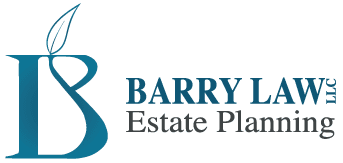Everyone agrees that it’s never too early to start saving for retirement. Most adults begin making 401(k) contributions as soon as they land their first real job, and common financial wisdom dictates that you need to put away 15% of your income in your 30s if you want to retire in your 60s. Foresight is common in retirement planning and yet, paradoxically, the same isn’t true of long-term care planning. Folks in their 30s, 40s, and 50s rarely think about issues like Medicaid eligibility despite the fact that ensuring health needs are covered is just as important to retirement success as looking after financial interests.
One factor which may explain this disparity is a lack of awareness of just how often long-term care needs arise. Everyone acknowledges that they will one day need to retire, but the same is not true of acknowledging the potential need for, say, at-home care or an assisted living facility. Nonetheless, government statistics indicate that 70% of U.S. adults require some form of long-term care in their lifetime, which means that a crippling bill awaits a huge majority…unless they begin planning early.
The cost of long-term nursing care in the U.S. varies widely, but it is never cheap. According to the U.S. Department of Health & Human Services, care costs range from:
- $225 a day or $6,844 per month for a semi-private room in a nursing home
- $253 a day or $7,698 per month for a private room in a nursing home
- $119 a day or $3,628 per month for care in an assisted living facility
- $20.50 an hour for a health aide
- $68 per day for services in an adult day health care center
No matter how judiciously you have saved for retirement, if you haven’t planned for long-term care needs, your hard work (and your life savings) could be wiped out in a matter of months. What’s more, if forced to pay for care out-of-pocket, you may not only burn through your retirement savings, but through your loved ones’ inheritances, too.
How to Plan Your Way Around Financial Catastrophe
The very wealthy may not need to worry about how to manage the exorbitant cost of long-term care. The rest of us, however, either need to invest in long-term care insurance (and soon), or look at how we can qualify for Medicaid.
Long-term care insurance is a viable option for those still far from retirement. However, premiums rise with age, so this is rarely an affordable solution for those approaching their golden years.
Medicaid qualification is a more robust strategy that works well, as long as planning begins early enough.
To qualify for Medicaid in Kansas, you must be:
- Responsible for a child 18 years of age or younger, or
- Blind, or
- Have a disability, or a family member in your household with a disability, or
- Be 65 years of age or older, or
- Meet strict income and asset maximums
It’s meeting and planning around the strict income and asset maximums that disqualifies most people from becoming eligible for Medicaid. However, an experienced elder law attorney can walk you through asset reallocation strategies that allow you to retain assets and income, while remaining eligible for crucial long-term care coverage. With the help of an attorney (and a bit of foresight) you can protect assets from being countable in enough time to qualify for Medicaid when you need it.
This said, Medicaid employs a five-year lookback period, which means that Medicaid qualification hinges on having done all of this planning and re-organization at least five years in advance of requiring these benefits.
Of course, there are Medicaid crisis planning strategies that can help an individual become qualified for Medicaid quickly, in emergency situations. The nuances of Medicaid crisis planning are outside the scope of this particular article, but it’s important to know that an elder law attorney can help someone become qualified for Medicaid, even after they have already entered a nursing home.
Nobody knows when they may need long-term care, which is why it is important to speak to an elder law attorney today to address how best to shelter yourself and your loved ones…no matter what may come.
To learn more about Medicaid eligibility—or to address any other question related to estate planning or elder care—do not hesitate to reach out Barry Law, LLC either by calling (913) 336-1600 or using the contact form below.
***
[ninja_form id=3]

